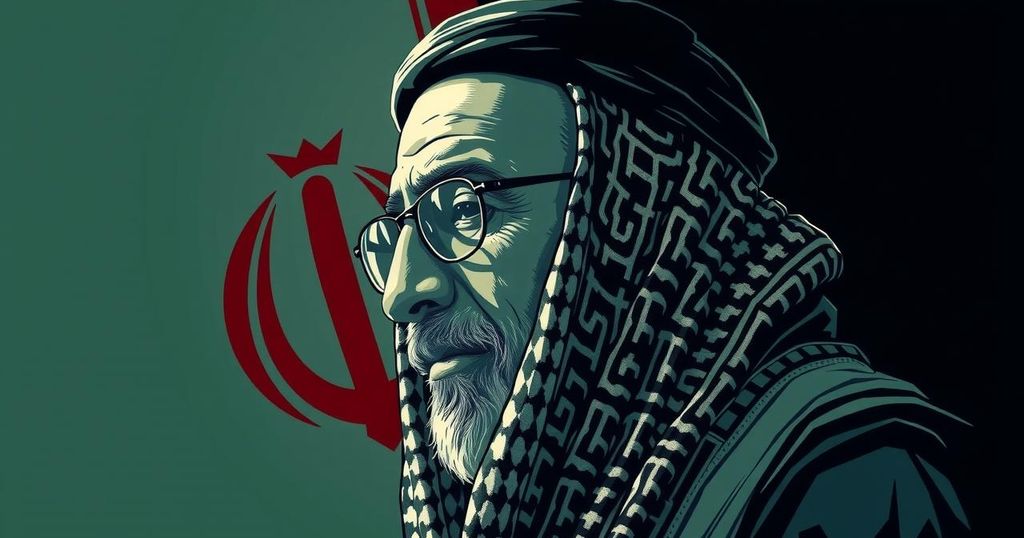Yahya Sinwar’s death has deeply unsettled the Iranian regime, serving as a reminder of the fragility of tyrannical powers. Groomed by Iran to lead assaults on Israel, his demise unfolds in a similar vein to the fall of Nazi leaders amidst desolation. Although praised by Iranian officials as a martyr, accounts reveal Sinwar’s troubled legacy of brutality and the suffering he inflicted on Gazans. His end prompts reflections on the nature of leadership and the costs of tyranny, echoing historical lessons from the Nazi era.
The recent death of Yahya Sinwar, a prominent leader within the axis of resistance, has reverberated throughout the Iranian regime, signaling significant implications for its future. Sinwar, who was groomed by Iran to spearhead wide-ranging assaults against Israel under the “Unity of Fronts” framework, met his end in the Gaza Strip amidst military confrontations. His demise has drawn parallels with the downfall of Nazi leaders during the collapse of Berlin—a stark reminder of the precarious nature of regimes entrenched in violence and tyranny. Sinwar was held in high regard by Qasem Soleimani and his successor, Esmail Qaani, representing Iran’s efforts to maintain prolonged hostility with Israel. After Ismail Haniyeh’s death, Sinwar quickly ascended to leadership within Hamas with the goal of intensifying the conflict in Gaza while inflicting substantial costs on Israel. However, this leadership was abruptly curtailed. On October 16, IDF troops encountered Sinwar in Rafah, where he was wounded during exchanges with Israeli forces. Following his death, regime representatives lauded him as a heroic figure standing against Israeli aggression. Prominent statements from Ayatollah Ali Khamenei and President Masoud Pezeshkian pursued a narrative of valor, branding Sinwar as a stalwart of resistance. Contrastingly, the circumstances surrounding Sinwar’s demise illustrate a different narrative. As detailed reports indicate, he was reportedly attempting to locate a tunnel to escape the area, indicating a move of desperation rather than heroism. Visual evidence captured his last moments: injured and disheveled, he sought refuge in the ruins while attempting to repel drone surveillance. The documentation of his body post-mortem revealed a gruesome image that many media outlets opted to obscure to maintain decency. Sinwar’s legacy is marked by brutal acts, including orchestrating the killing of over 1,200 Israeli civilians during recent violent campaigns. Known as “the butcher of Khan Yunis,” he exhibited extreme cruelty, having historically silenced dissenting voices within Hamas with ruthless violence. His past included harrowing accounts of forcing individuals to commit egregiously inhumane acts, indicative of a psychopathic disposition. Moreover, his leadership bore devastating consequences for Gaza itself, exacerbating the suffering of its inhabitants and deepening cycles of poverty and violence. The acknowledgment of his death has, unexpectedly, resulted in relief for many who endure the ceaseless suffering instigated by his regime. The comparisons drawn between the demise of leading Nazis amid the ruins of Germany and Sinwar in Gaza evoke reflections upon the ultimate fate of tyrannical governance. Iran’s backing of Hamas, which relies on historically ignorant evocations of Nazi imagery, requires serious reconsideration, particularly in light of how the Nazi regime met its end in catastrophic defeat. This tragic unfolding not only reflects upon the leaders involved but serves as cautionary insight for regimes operating under the banner of tyranny.
The article discusses the implications of Yahya Sinwar’s death, a key figure in Hamas and a pivotal player in the Iranian strategy against Israel. Sinwar had been placed in leadership by Iranian military leaders to escalate conflict in Gaza, despite having a past cloaked in violence and brutality against both Israelis and Palestinians. The narrative highlights the broader context of tyranny, drawing historical comparisons to the Nazi regime’s collapse, while also underlining the sociopolitical dynamics in Gaza.
In summary, the death of Yahya Sinwar marks a significant turning point, echoing the demise of tyrants in history while highlighting the consequences of violent regimes on the populations they govern. His leadership perpetuated suffering in Gaza and engaged with historical parallels to oppressive regimes that eventually face monumental collapse due to their actions. This moment calls for introspection among Iran and its proxies regarding the viability and morality of their current strategies.
Original Source: www.jpost.com






